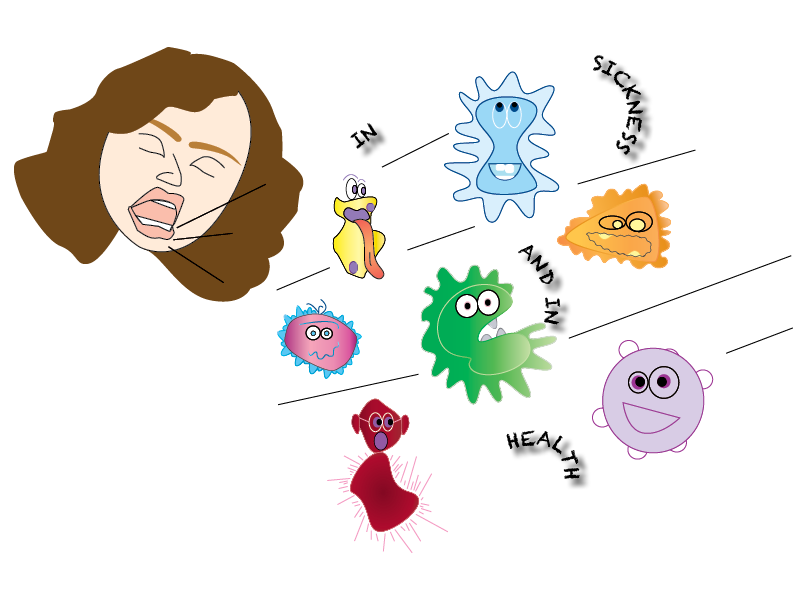Alexandra Harte, Editor
@aharte_courant

It’s almost inevitable for students to wake up one morning before school with groggy eyes, a sore throat and a tissue glued to their hand. They sit slouched at breakfast, wondering: is it worth going to school today? They worry about all the work they’re going to miss, but they know they won’t be able to focus anyway. How can students determine if they should go to school?
According to the Connecticut State Department of Public Health, there were 954 hospitalized patients with influenza between August 26 of 2018 and January 26 of 2019. That’s at least six people admitted per day during flu season, which is generally considered from December to February and sometimes even lasting until May. Yet, on January 20 of this year, 94% of polled students at NCHS agreed that they feel pressure to attend school when they’re sick in fear of missing work and based on personal experience, these students believe that school is more important than staying home to feel better.
Emma Freatman, Teen Talk Counselor, believes that when students place this pressure on themselves, they forget the key to catching up on work: communication with teachers. Once students contact their teachers for help or missing work, their stress will melt away. “If a kid misses class, of course their teachers are going to fill them in on what happened and try to catch them up,” Ms. Freatman said. “I haven’t encountered a teacher yet who said they weren’t willing to accomodate a student.”

Vivian Ding, a junior who missed one and a half weeks of school before Christmas break, serves as an example of teachers helping a student have a smooth return to school. “I had a virus and some sort of bacterial infection. I had to take antibiotics to get rid of the infection, but the virus stuck around,” she said. Vivian missed 7 days of school, a physics midterm, a math quiz, and the majority of the research for her junior research essay. Yet, Vivian was able to make up everything that she missed. “I emailed all of my teachers well in advance, and they were all pretty lenient with the work due,” Vivian said.
Ms. Freatman has also noticed a trend in students’ mindsets when it comes to debating whether or not to come to school. “I think students see a snowball effect: if I miss this one class, then I’m going to be behind and then I’m going to have more work to do and then it’s going to be more stressful,” Ms. Freatman said. “But, I also think if you’re sitting in class and you’re just so sick that you can’t pay attention, you shouldn’t have come to school anyway.”
Dr. Rosemary Klenk of New England Pediatrics agrees with Ms. Freatman that attending school while sick may be counterproductive. “One cannot hurry the recovery in these cases,” Dr. Klenk said. “Returning to school and or activities too soon will often set the student back, which means the recovery ends up taking longer and more school is missed.”

It’s important to acknowledge that physical symptoms can initiate mental health problems as well. “The link between mental and physical health is definite, but complicated by so many different influences. They generally go hand in hand. Of course, a physical illness can cause worry, anxiety and a negative mood,” Dr. Klenk said.
Dr. Klenk also recognizes that a student can’t wait until they feel 100% healthy to attend school. “Students not only have to deal with the current workload, but need sufficient energy to do the necessary make-up work,” Dr. Klenk said. “A gradual approach allows the student to adjust steadily and see how they feel when back in the classroom.”
Junior Ryan Benevento understands the importance of knowing when to gradually return to school. One day, after receiving a negative influenza test, she awoke before school with a fever of 102.5 degrees. Yet, she decided to attend school. “I only went to school for half of the day because I had a math quiz that I would get a zero on if I didn’t take it,” ryan said.

Despite her realistic approach, both the nurses at the high school and Dr. Klenk state that a student should never go to school with a fever, nausea or uncontrollable cough. “Going to school made me feel worse,” Ryan admitted. “Before, my fever was going down, but a few hours after school it went back up to 102. To catch up on my work, I woke up at the usual time and did notes for history instead of sleeping.”
But, ideally, students wouldn’t have to get sick in the first place. So, how can students remain healthy? “Don’t touch your face because that’s how the germs get into your body,” said high school nurse Janet Reed. “They travel through your mouth, nose and eyes, so wash your hands.”
Her colleague nurse Kim Bean stresses the fact that the nurses understand that students can’t take a day off for a common cold. If students have had a fever less than 24 hours ago or have an uncontrollable cough, however, then they shouldn’t come to school. “It’s okay to take a day off,” nurse Bean said. “Your body needs to heal and you probably just need to sleep.”
In addition to washing their hands and getting rest, students should be sure to stay hydrated. “In the winter, when it’s not hot, we don’t always feel thirst the way we do in the summer,” Nurse Reed said. “But when your cells are well hydrated, they’re plump and the edge of the cell is better able to fight off viruses and illnesses.”

Dr. Klenk believes that illnesses, like all unexpected life events, can be managed with reason, common sense, and support from caring adults, including parents, teachers and doctors. “These significant adults can help a student to keep the entire process of illness and recovery in PERSPECTIVE,” Dr. Klenk said.




